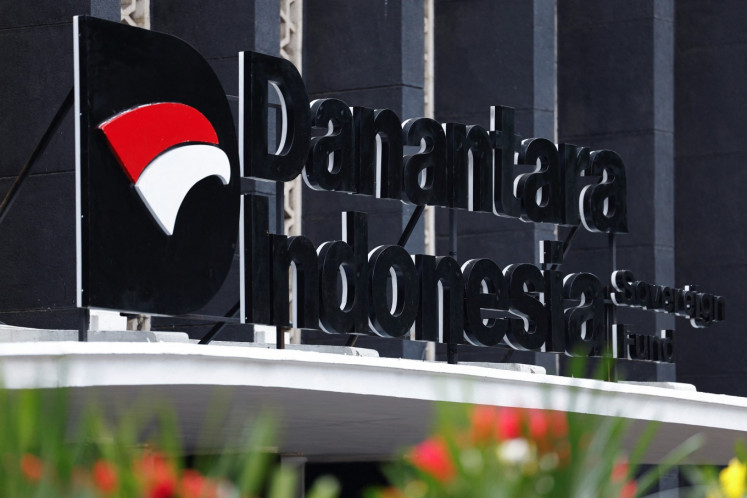Popular Reads
Top Results
Can't find what you're looking for?
View all search resultsPopular Reads
Top Results
Can't find what you're looking for?
View all search resultsEditorial: Reciprocity in ASEAN banking
The ASEAN Banking Integration Framework is closer to completion after the three largest members of the regional grouping â Indonesia, Malaysia and Singapore âagreed to adopt reciprocity principles for a Qualified ASEAN Bank (QAB), which was the most contentious issue in the negotiations for the 2020 banking market integration
Change text size
Gift Premium Articles
to Anyone
T
he ASEAN Banking Integration Framework is closer to completion after the three largest members of the regional grouping ' Indonesia, Malaysia and Singapore 'agreed to adopt reciprocity principles for a Qualified ASEAN Bank (QAB), which was the most contentious issue in the negotiations for the 2020 banking market integration.
Indonesia, the region's largest economy with the largest population (250 million), yet with the lowest banking penetration, has been the strongest proponent of the reciprocity principle because its banks find it extremely difficult to fulfill the licensing requirements imposed by the other two countries.
So strong had been Indonesia's stance on the reciprocity principle that this issue had been seen as the main reason behind Bank Indonesia's decision last year to reject the US$7 billion proposal from Singapore's DBS Bank, the largest in the region, to acquire Bank Danamon, the sixth largest in Indonesia.
Indonesian banks have recovered strongly from the 1998 crisis but the industry has remained quite fragmented, populated by around 120 commercial banks, mostly small. Even the country's largest bank, state-owned Bank Mandiri, is ranked only the eighth largest in ASEAN, with the largest seven in the region dominated by Singaporean and Malaysian banks.
Indonesia's two largest banks, Bank Mandiri and Bank BNI, have shown ambition to expand to other ASEAN countries in a bid to gear up for the ASEAN Economic Community slated to begin late next year. But the requirements for full-branch services imposed by the two countries are much tougher than those Indonesia imposes on foreign banks, including from ASEAN countries.
Singapore and Malaysia's largest banks have made significant inroads into Indonesia's banking market. In fact, Malaysia and Singapore-controlled banks rank among the 10 largest in Indonesia. Malaysian and Singaporean willingness to finally agree to accept the reciprocity principle seems to have been prompted by the realization that the AEC would be insignificant without some degree of financial integration and that such integration would be meaningless without Indonesian participation.
The basic point of the reciprocity principle is a balance in the number of QABs allowed to operate in ASEAN members. This means, for example, that two Indonesian banks will be entitled to operate in Malaysia as there are now two Malaysian banks operating in Jakarta.
The other point of agreement is that when the ASEAN Banking Integration Framework comes into effect in 2020, banks from ASEAN members already operating in one or two other member countries are automatically treated as QABs. The biggest advantage is that a QAB is treated in ASEAN countries as a local bank, different from banks from other non-ASEAN countries, which will continue to be treated as foreign banks.
It is, however, encouraging to learn that the ASEAN Banking Integration Framework will not race to the bottom or adopt the lowest common denominator because banks from ASEAN members have to obtain recommendations from the banking regulator in their home countries to be able to run as a QAB in other countries.










